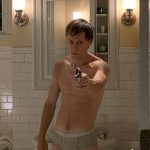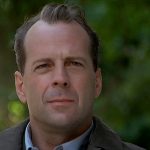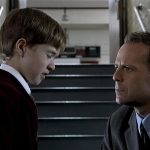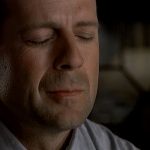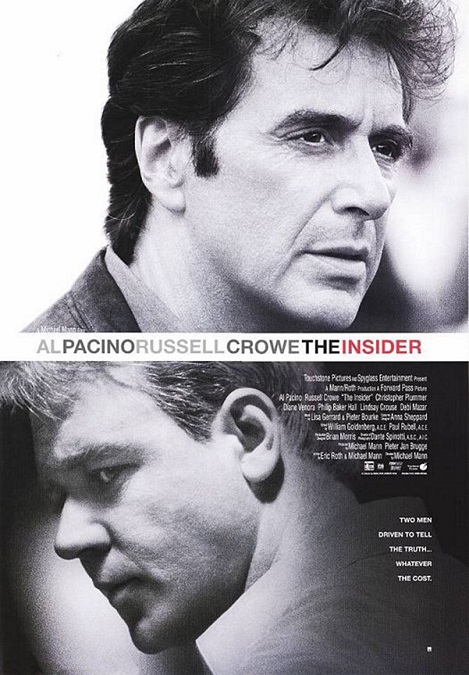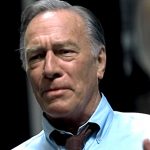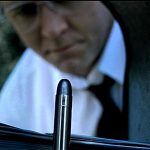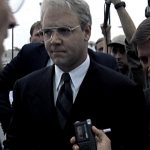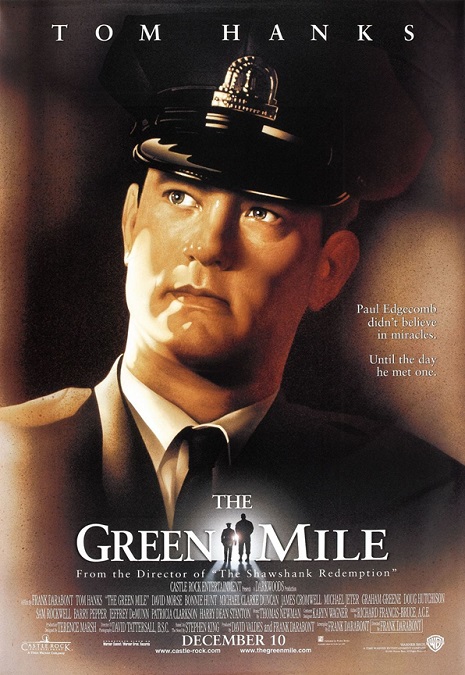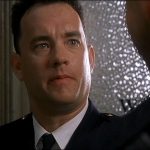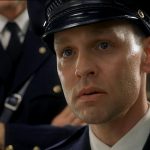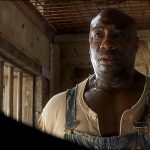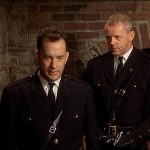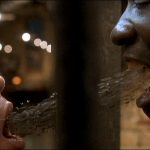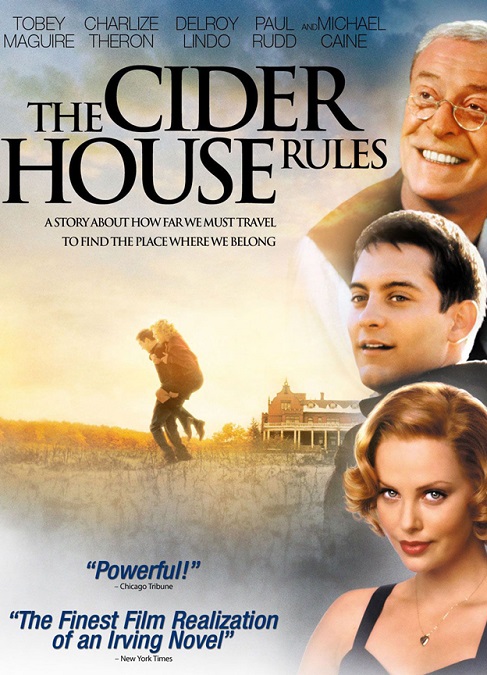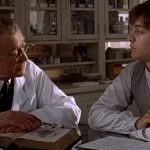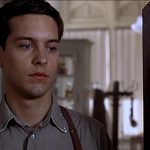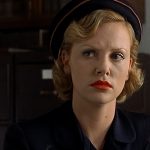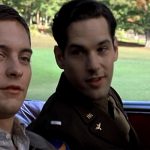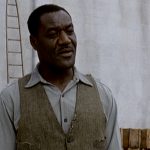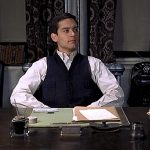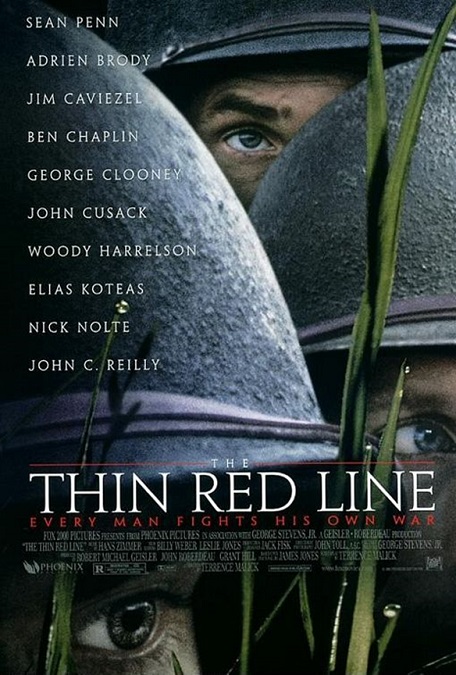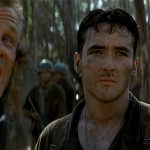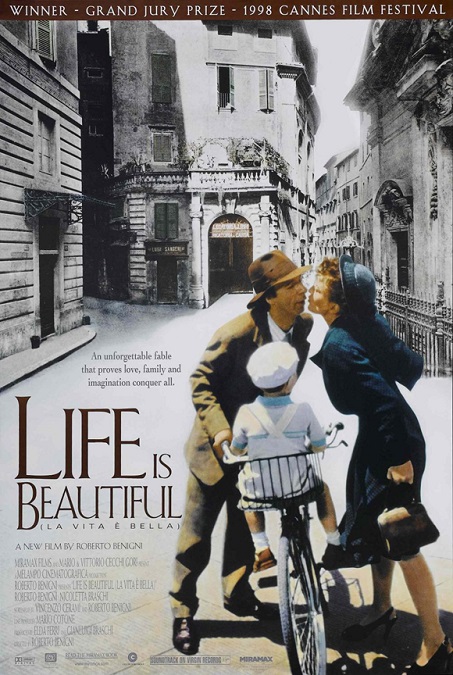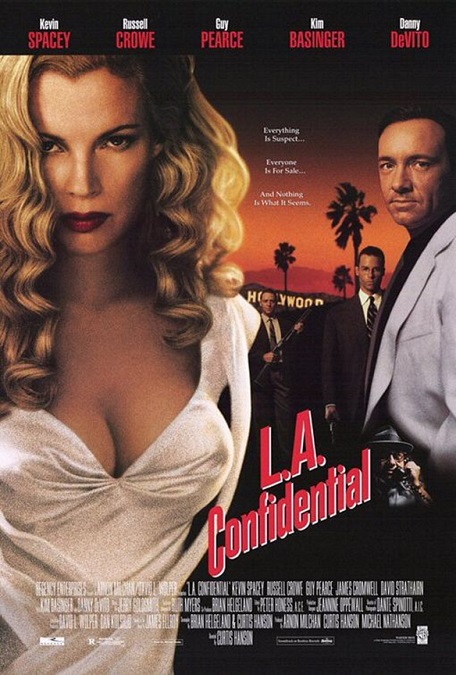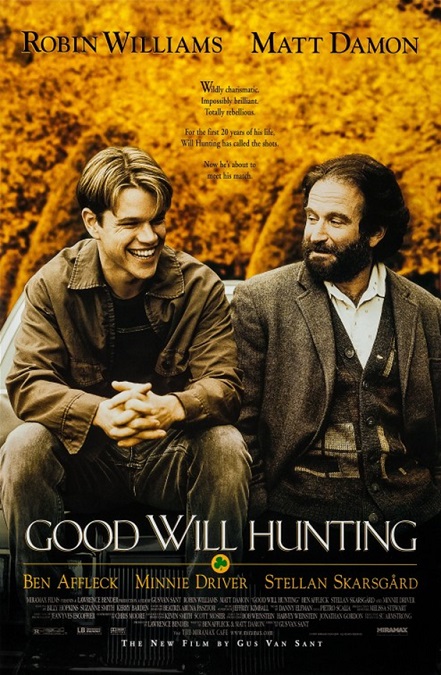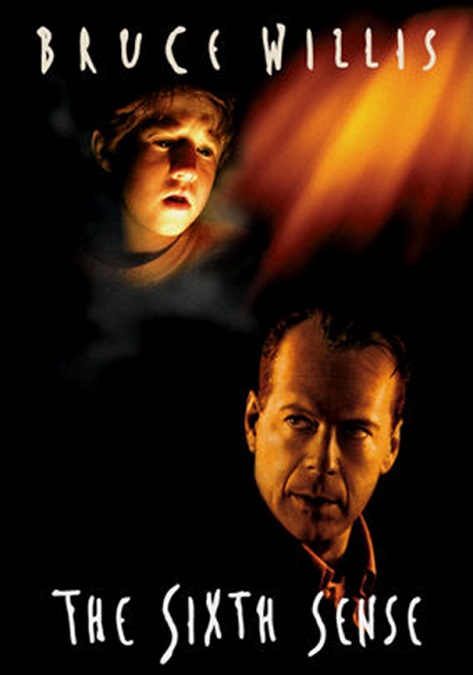
The Sixth Sense – 1999
This was a wonderfully made film. It had a fascinating story line, incredible directing, perfectly cast actors that did a fantastic job, and a surprise twist in the end. This is one of the first major films written and directed by M. Night Shyamalan. It was a very big box office success, though unfortunately, most of his films since then have not had as much success. I say this, knowing that he had other well-liked films such as Unbreakable in 2000, Signs in 2002, and Split in 2016. I personally loved his 2006 film, The Lady in the Water, though from what I can tell, most people didn’t care for it.
The Sixth Sense was a suspense thriller, something we don’t often see in a Best Picture Nominee. Bruce Willis plays the lead as Dr. Malcolm Crowe, a successful child psychologist in Philadelphia. At the beginning of the movie, we see him winning an award, but his celebrating is interrupted by a home intruder. It is a former patient named Vincent who the good doctor could apparently not help. In a fit of depression and madness, the grown child shoots Malcolm and then himself. We then cut to a later time period as Malcolm is taking on a new patient. His mental problems seem to be very similar to Vincent’s, and Malcolm takes a particular interest in his case.
The film’s creepiness quickly escalates as the boy, Cole Sear, amazingly played by an 11 year old Haley Joel Osment, seems to be haunted by horrific and sometimes violent visions. He thinks that Malcolm cannot help him, but using his gentle and professional nature, the psychologist develops a bond with him. Eventually, Cole confesses that he sees dead people, and not just a few. He sees them all the time. The child is an unwilling medium.
At first Malcolm has difficulty believing him, but on a whim, he returns to his files on Vincent. In one of the film’s more creepy scenes, he listens to a cassette recording from one of his sessions with Vincent. When he turns the volume on the tape machine up to full, he can clearly hear a stranger’s voice in the room with a terrified Vincent, when the boy should have been alone. It is then that he begins to believe Cole’s unlikely claims. I love how this also shows how Vincent had been afflicted with the same gift as Cole.
Malcolm teaches Cole how to deal with the ghosts he encounters, suggesting that he talk to them and help them deal with their unresolved issues. After Cole helps a young girl who had been murdered by her mother, and in the process saving her younger sister’s life, Cole seems to come to terms with the potential benefits and responsibilities of his unwanted gift. As his work is done, Malcolm and Cole say goodbye.
But there are two more important scenes in the film. The first is a scene in which Cole tells his mother, Lynn, excellently played by Toni Collette, his secret. He does so in a way which is emotional and brought both Lynn and me to tears. He gives her messages from her dead mother, speaking of things that were personal and private, things he would have no way of knowing anything about. The second is the big twist in the end that Shyamalan seems to love. We find out in a most shocking manner that Malcolm is among the dead with which Cole has been communicating. He never survived Vincent’s gunshot wound.
The film was so well directed that the first time I watched it back in 1999, I had no idea that Malcolm was dead. But if you watch the film with that knowledge, you can see all the obvious signs as plain as day. It was masterfully directed and excellently edited. The clothes he wore were always the same. Nobody ever interacted with him except Cole. It was all so perfectly put together, an impressive feat of filmmaking. The movie makes us feel fear over the ghosts and sympathy for Cole as he is forced to see the often bloody and mangled spirits in his waking life. Both Willis and Osment really turned in a phenomenal performances.
But I also have to give Toni Collette a huge thumbs up as she did a great job, too. The way she interacted with her son throughout the entire film was a perfect mixture of the frustration and helplessness of a single mother trying to raise a troubled child. The scene in which she learns of Cole’s horrible powers and is convinced that her mother is speaking to her from beyond the grave is powerfully portrayed. Well done Toni!
Of course, I would be remiss if I didn’t mention some other memorable names in the cast that made for a great film. The role of Vincent, short as it was, was played by Donnie Wahlberg. Malcolm’s wife, who we think is depressed because her marriage seems to be crumbling, well… until the end of the movie, is played by Olivia Williams. And Kyra Collins, the little girl who had been murdered by her mother, was played by Mischa Barton. The entire cast did a great job and if you like supernatural suspense films, you will definitely like this one.
